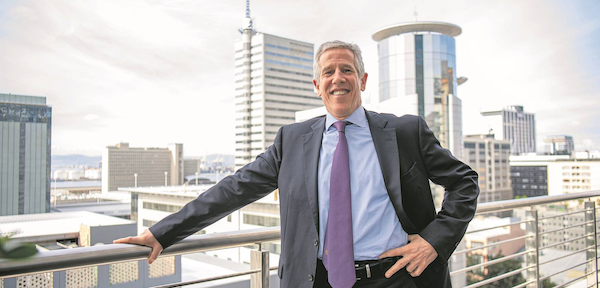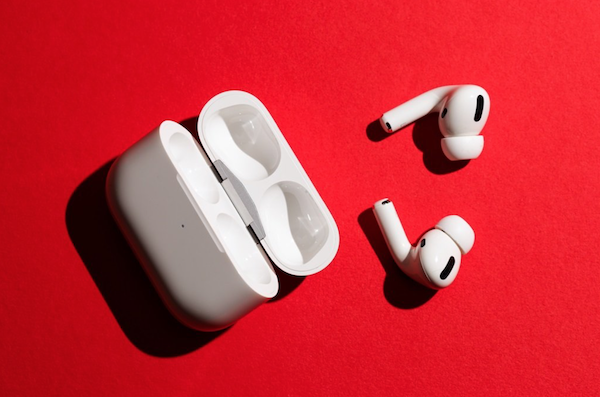Market Scorecard
Trade talks, the reason for market movements again yesterday. Trump came out to clarify that the two sides are getting closer to a deal. When he said that maybe they would only sign a trade deal after the 2020 election, it shouldn't be interpreted that the talks are going badly, it was just him talking off the cuff.
The market now seems to be pricing in the signing of a 'skinny deal' soon, which includes the rolling back of some tariffs, and then signing a big trade deal at the end of next year after the elections - assuming that Trump gets re-elected.
Locally, SAA was put into business rescue last night. Chatter on twitter seems sceptical that there is any business left to rescue, but what it does show is that the government is willing to start making difficult decisions, and stopping the action of throwing money down a black hole. The Rand didn't react much to the news. It will be interesting to see how the Comair share price reacts today. If SAA starts to reduce flight numbers, BA and Kulula could benefit by having higher passenger numbers.
Yesterday the
JSE All-share closed up 0.99%, the
S&P 500 closed up 0.63%, and the
Nasdaq closed up 0.54%.
Our 10c Worth
One thing, from Paul
Investec is in the process of spinning off its London-based asset management business, which has GBP 121 billion in assets under management. That operation was founded in South Africa by
Hendrik du Toit in 1991, so the new name that they came up with for the company is
Ninety One.
An excellent article (link below) by
Sasha Planting in the Daily Maverick reviews the listing process, and looks at the threats and opportunities that the business faces.
I like Hendrik a lot. He's just a few years older than me, and has been really friendly to me in our few interactions over the years. One year we met each other in the street for a chat after running the New York Marathon.
He makes the comment in the article that "Investing is an act of faith. It's an act of hope, of trying to shape a better future". He notes that
asset managers are agents of change, because they "pool and apply capital, and then return it for people to live better".
I endorse this view. When you buy shares in a listed entity, you are supplying them with your capital to further their business growth, and getting rewarded with a share of their profits and (hopefully) dividends. This is why we invest in world-changing companies like Google and Amgen, not ones that kill their customers like British American Tobacco.
Although active asset managers are threatened by passive, index tracking exchange traded funds, du Toit notes that "if you have a business with an operating margin of over 30% and infinite return on equity, you can survive. Just don't compete head-on with Black Rock." Good point!
More in the article on the Daily Maverick:
An Investor Unshackled Has Wings to fly.

Byron's Beats
You may be seeing headlines of Trump imposing tariffs on France whilst rolling your eyes, thinking that this fool is just on another tariff rampage. But if you are a Vestact client this is actually quite significant and Trump is actually on your side.
The reason Trump is imposing those tariffs is because the French introduced a 3% digital services tax on US tech giants like Amazon and Google. Yes, the shares you own.
European countries have been threatening some sort of revenue based tax for a while now. They feel unfairly treated because the big tech companies have found ways to avoid tax.
Of course I am biased here but I stand behind big tech on this one. Tax on revenue instead of profit is not cool. A company like Amazon has high revenues and low profits because they are reinvesting most of their cash. Reinvesting stimulates economies and indirectly results in more taxes. That kind of behaviour should be encouraged.
I also think that the efficiencies and competition brought on by big tech has kept prices low, benefiting consumers and curbing inflation. A revenue tax will most likely be passed on to the consumer which counters all the good being done.
The US economy has been very business friendly over the last few decades compared to Europe. Hence a thriving economy and huge innovation. Forgive me for supporting their model over the more socialist Europe, which is going sideways at the moment.

Michael's Musings
Reading the article below, about how successful the new AirPods are, reminded me that Apple is a huge company. Bloomberg forecasts that Apple will sell 60 million AirPods this year, 2019. Going forward, the expectation is that they will sell even more due to an increasing number of people wanting to go wireless and because the new AirPods are a significant improvement on previous models. For most companies if they sell 60 million units in a year, that will be massive. In the case of Apple, those profits get lost in their wearables business, which only accounts for 10% of the whole company's revenue.
You can read the Business Insider article here -
Apple's new AirPods Pro are barely a month old, but they're already so popular that the company is reportedly doubling production

Bright's Banter
I just finished reading one of the very few old research notes on Netflix by Paul. Some key takeaways from the numbers is that
in 2011 Netflix added 1.7 million new net subscribers, bringing the total subscriber numbers to 24.5 million, Multichoice had just launched box office and Amazon Prime Video was also catching some steam.
In 2011 the Netflix share price was $10.37 adjusted for all the stock splits, Naspers share price was R342 and Amazon traded at $173.10. This was really the beginning of the content wars 4.0 as everything was moving towards streaming from the scratchy times of CDs and DVDs. Remember those; smh?
Fast forward to 2019, the race for on-demand OTT streaming content is wide open.
Netflix now has over 160 million net subscribers and you have over 15 solid competitors including Disney+, Apple, HBO Go, Hulu, AcornTV, Britbox, and the original gangster YouTube.
Paul made some predictions including that DVDs will be dead, cable tv will suffer, more content will be consumed across all devices that connect via "bandwidth on the web", more favourable pricing for consumers, AmazonPrime will be available on Kindle-esque devices, and these streaming companies will attract millions of customers.
A lot of the above has come to fruition, but I don't think even Paul had this kind of scale in mind when he wrote about these 'DVD killers'. The chart below shows an estimate of how much these production houses spend on non-sports video programming for 2018/2019 year.

You will find more infographics at
Statista
Linkfest, Lap it Up
Knowing what apps people use and buy gives a good indication of what is important to the consumer - Facebook and Google apps feature prominently on this list. Also, if you are looking for a game to play on your phone while on the beach this December, have a look at what other people are playing? -
These are the best apps and games of 2019, according to Apple.
 Anyone keen to go to North Korea
Anyone keen to go to North Korea for a skiing holiday this year? -
North Korea's Kim Jong-un opens new city and 'socialist utopia' of Samjiyon.
 Signing off
Signing off
The big news today is that Saudi Aramco is pricing its IPO this morning, which should officially make it the largest public company in the world. There is a whole bunch of EU data out today, which includes manufacturing numbers, retail numbers, unemployment figures and a GDP read. The expectation is that the EU economy grew by 1.2%. The JSE All-share is higher this morning.
Sent to you by Team Vestact.



 You will find more infographics at Statista
You will find more infographics at Statista

